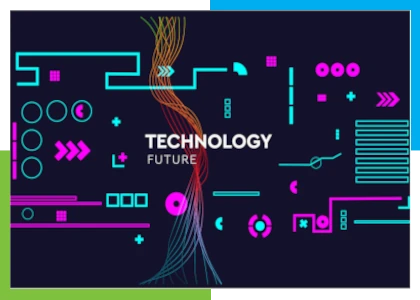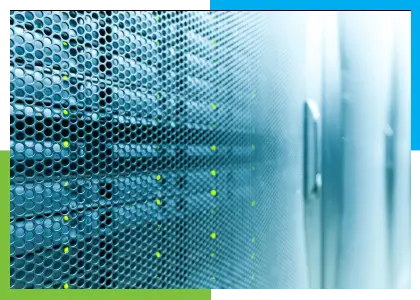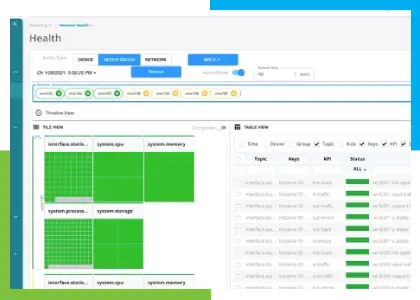YOUR IT Blog’s
PCS Blog’s
THE LATEST NEWS, PRODUCT & SOLUTION TALKS

Committed to finding solutions for your unique needs and challenges.

Strengthening the Value Proposition for Distributed Work
By PCS | 9 January 2024
The modern workplace is undergoing a transformation, largely driven by the rise of remote work. This shift is not just a temporary response to global events but a fundamental change in how businesses operate, powered by digital transformation and cloud computing. In this blog post, we explore the implications of this shift, the challenges it poses, and how PCS Solutions, in alliance with Juniper Networks, is addressing these challenges to enhance the effectiveness of remote work.
The Rise of Remote Work and Its Implications for Businesses
Remote work has rapidly evolved from a niche option to a mainstream working model. This transition is fuelled by advancements in digital technology and cloud computing, enabling employees to work effectively from any location. The implications for businesses are significant, impacting everything from workplace culture to IT infrastructure. Companies are now tasked with creating digital environments that support collaboration, productivity, and employee engagement, regardless of physical location.
Challenges: Ensuring Productivity and Collaboration in a Remote Setting
Transitioning to a remote work model presents several challenges. Key among these is maintaining productivity and collaboration. Without the right tools and strategies, remote teams can face communication hurdles, a lack of engagement, and cybersecurity risks. Businesses need to ensure that their remote workforce is equipped with the right technology to stay connected and secure.
Tools and Strategies
PCS Solutions, in collaboration with Juniper Networks, offers an array of tools and strategies designed to overcome the challenges of remote work. These solutions focus on creating a secure, seamless, and efficient remote working environment. Key offerings include:
- Data Center Networks: Juniper’s Data Center Networks solution focuses on enhancing reliability across both centralized and edge locations, ensuring operations are dependable with minimal delays. It utilizes Juniper Apstra intent- based software to make the management of private data centers as streamlined as managing cloud resources. This solution provides reliable automation and operational excellence throughout the entire lifecycle of the network, supporting a wide range of vendors and network topologies.
- Wired and Wireless Solutions: Juniper’s solutions in this area are designed to deliver optimal experiences for both wired and wireless users. The integration of Mist AI and Wired Assurance simplifies network operations, enhancing the overall user experience from client to cloud.
- Enterprise at Home Solution: This solution is tailored for remote work environments. It provides AI-driven insights into user experiences at home and remote offices, enabling proactive troubleshooting and resolution of issues from anywhere. This solution also ensures the security of the distributed enterprise and offers scalability with the agility of a microservices cloud.
- Juniper Zero Trust Data Center: This approach secures and operationalizes the data center by extending security services across centers of data. It allows enterprises and service providers to implement zero trust at their own pace, with a focus on unified policy management that follows users, devices, and applications across any network in a hybrid, multicloud environment. This solution offers scalability, high-performance forwarding capacity, and is designed to address the security challenges of modern, distributed data centers.
- Managed SD-WAN Solutions: Juniper’s AI-driven SD-WAN solution enables managed service providers (MSPs) to offer differentiated services with simplified operations, better network performance, and improved customer engagements. This solution uses Session Smart™ Routers and the Juniper Mist Cloud to deliver resilient WAN connectivity, proactive insights, and automation, helping MSPs improve service-level agreements while simplifying their network and support operations.
Case Study: Transforming Distributed Work
To illustrate the impact of these solutions, consider the case of a mid-sized company that transitioned to a remote work model using PCS Solutions and Juniper Networks’ technology. Facing challenges in maintaining productivity and ensuring secure access to company resources, the company implemented Juniper’s secure networking solutions and PCS’s cloud services.
The result was a dramatic improvement in remote work efficiency. Employees could securely access the network from any location, collaboration tools were integrated seamlessly, and IT administrators could manage network operations effectively, ensuring a high level of security. This transformation not only improved the company’s operational efficiency but also enhanced employee satisfaction and opened new avenues for hiring talent globally.
Conclusion
The shift to remote work is more than a trend; it’s a fundamental change in how businesses operate. By leveraging the right tools and strategies, such as those offered by PCS Solutions in alliance with Juniper Networks, businesses can navigate this change successfully. The case study highlights how these solutions can transform a company’s remote work capabilities, leading to improved productivity, collaboration, and security. As we move forward, embracing these digital transformations will be key to thriving in the new normal of distributed work.






